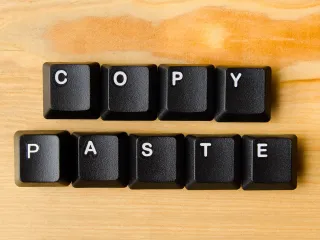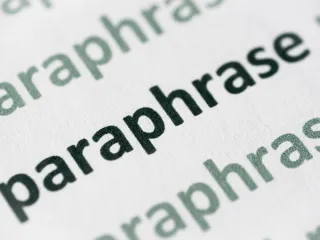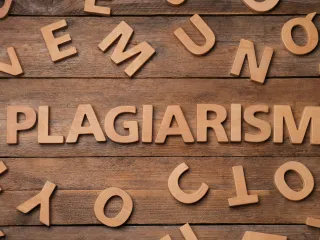Have you ever heard the phrase “honesty is the best policy”? It’s a saying that holds true in all aspects of life, including academics.
Academic integrity is about being honest, fair, and responsible in your academic work and studies. In simpler terms, academic integrity means doing your work without cheating or plagiarizing.
In today’s digital age, where students can access a wide range of tools such as Automatic Paraphrasing Tools (APTs) to generate their work, it’s easy to violate academic integrity. But this kind of behavior compromises your credibility and puts you at risk of severe consequences.
For instance, employers who value honesty and integrity may check your academic records to see if you’ve adhered to the honor code and avoided academic misconduct.
So, how can you avoid such risks? The answer is simple: always do your work and give credit where credit is due. In this guide, we’ll go over everything you should do to build a reputation of integrity that will serve you well throughout your life.
What Is Academic Integrity?
Academic integrity is a set of core values that address the importance of honesty, fairness, and responsibility in academic work. Simply put, academic integrity is avoiding any form of academic misconduct, such as plagiarism, cheating, and passing off someone else’s work as your own.
This way, you can uphold the clear standards set in place by the higher education systems to ensure that academic work is done properly.
But if you’re unsure what constitutes academic misconduct, check your school’s regulations, which usually cover the sanctions associated with all types of academic misconduct.
Academic Honesty vs. Academic Dishonesty
Academic honesty is all about being truthful and doing your work. This means that when you submit an assignment, you should ensure that your ideas and words are your own and not copied from someone else’s work.
On the flip side, academic dishonesty is when you engage in deceptive practices like cheating on exams, plagiarizing content from the internet, or falsifying grades and documents. Let’s go over both of these concepts in detail:
What Is Academic Honesty?
In a nutshell, academic honesty is about being truthful and fair when it comes to your education. These values are at the heart of every educational institution and something every student should strive to uphold.
Suppose you want to learn how you can uphold academic honesty. In that case, you can find excellent resources at ‘The International Center for Academic Integrity,’ a non-profit organization that provides resources like syllabuses and revision materials to help students maintain high standards for integrity in academic work.
What Is Academic Dishonesty?
Academic dishonesty is about doing things that go against the rules of academic integrity. This can include cheating, plagiarism, falsifying information, and breaking copyright laws.
Thankfully, academic institutions are doing their part to help students stay on the right track. They’re introducing academic integrity courses that outline what kind of behavior is considered dishonest and what type of misconduct students should avoid.
But what happens if you do break the rules? Well, violating academic integrity policies can lead to some severe consequences. It could result in being expelled from the institution, damaging your academic reputation, and even losing funding.
Types of Academic Misconduct and Academic Dishonesty
The table below shows the common types of academic misconduct:
| Type | Definition | Example | Consequence |
| Falsification | It is manipulating research materials or omitting data. | Changing the credentials in your resume | The revocation of enrollment in the institution and damage to academic reputation. |
| Stealing original work | This academic misconduct involves copying the work of others. | Copying and pasting another student’s work. | Legal action and loss of credibility. |
| Impersonating | This is where a person other than the student completes the assignment. | Getting someone to take an examination for you. | Expulsion from the university. |
| Plagiarism | It involves presenting someone’s work as your own, with or without their consent and acknowledgment. | Including a direct quote without quotation marks or paraphrasing someone’s work without citation. | Damage to professional reputation or academic penalties. |
| Contract cheating | Contract cheating is when a person uses a third party’s help to do their work in exchange for money or a favor. | Purchasing a paper online or paying someone to write an essay for you. | Expulsion from university or loss of credibility. |
| Failing to use the correct attribution | Constitutes not properly attributing or citing someone’s work. | Not attributing a quote to its original author.
Not giving credit to a photographer whose work is used in your student work. |
Loss of credibility or damage to your reputation. |
| Fabricating data | Fabricating data involves making up data and recording it as your original work. | Making up data when it should be collected by an experiment or falsifying financial data. | Loss of funding or legal penalties. |
How To Maintain the Fundamental Values of Academic Integrity
Here are some tips to help you maintain academic integrity:
Perform an academic search: Instead of relying solely on Google, visit your local library and browse through books and journals to learn more about your topic and get background information.
Look for credible sources: Academic integrity involves using sources from reputable authors. So be sure to use accurate and valuable sources.
Use relevant evidence: Once you’ve found a credible source, use evidence that supports your claims and is relevant to your topic.
- Cite credible sources: It’s important to accurately cite any information you’ve used in your academic work to avoid plagiarism.
- Provide an original academic voice: Simply citing credible information is not enough. Your work must be original and showcase your unique voice and ideas.
- Avoid all forms of plagiarism: Plagiarism can take many forms, not just direct copying, and pasting. So be sure to properly cite any outside information you’ve used in your work.
Additionally, using Quetext can help you uphold academic integrity by identifying potential plagiarism and ensuring your work is original and properly cited.
So, if you’re a student or academic writer, why not give Quetext a try? It’s fast, affordable, and can give you peace of mind when it comes to your work’s originality!









